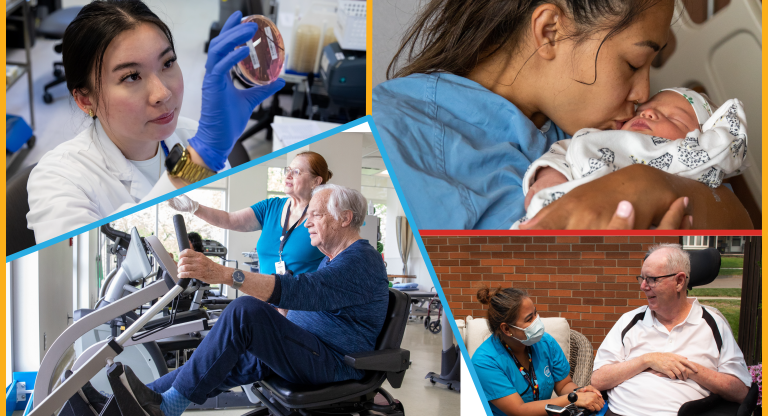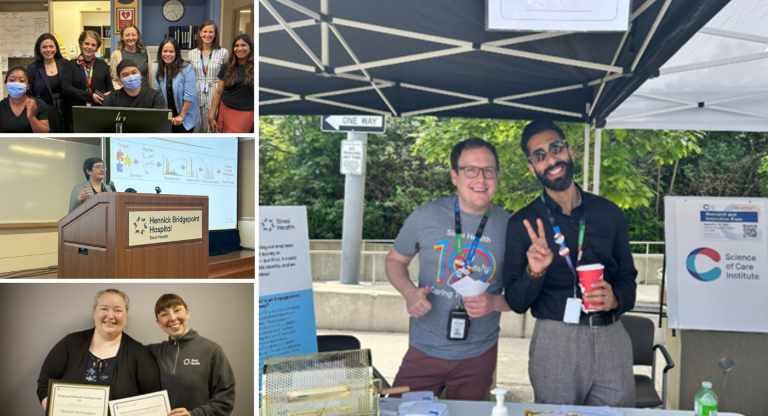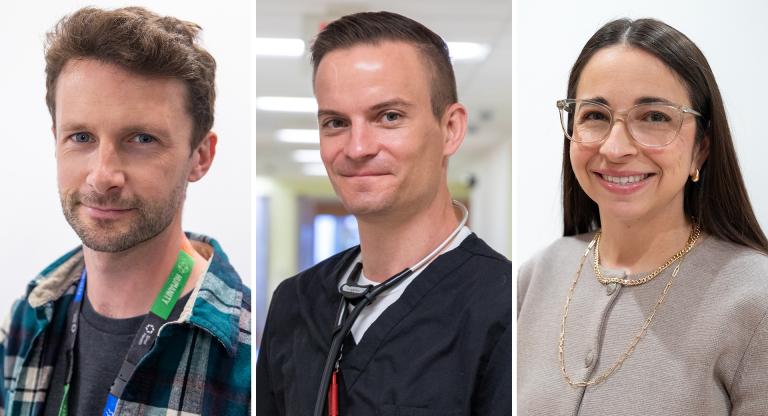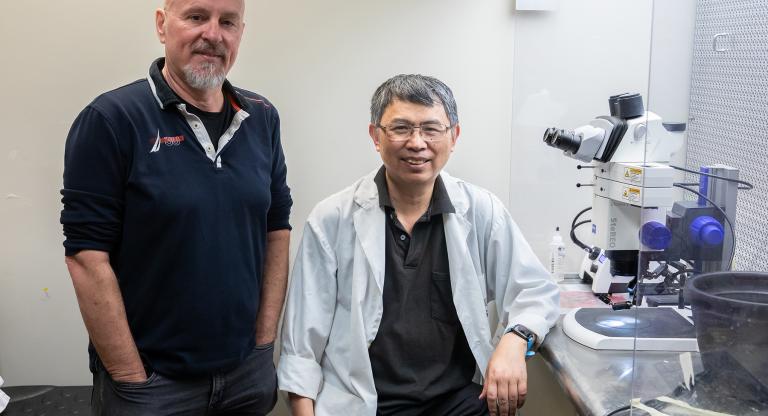Sinai Health study finds genetic clues to development of head and neck cancer
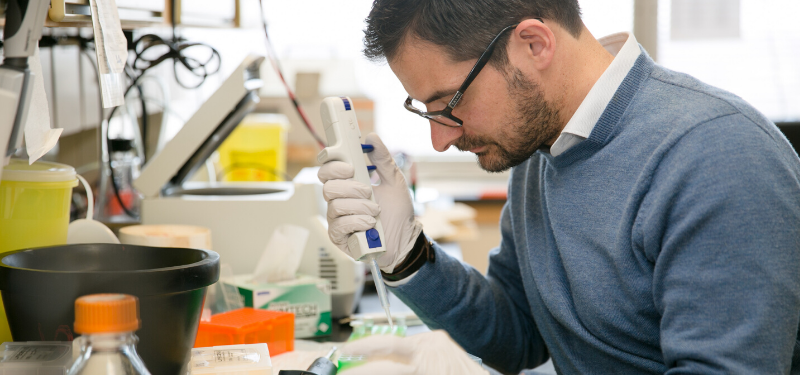
A Sinai Health study has identified a common molecular mechanism that fuels cancer growth in up to 70 per cent of head and neck cancer patients, shedding light on possible new therapeutic strategies.
The study was led by Daniel Schramek, investigator at Sinai Health’s Lunenfeld-Tanenbaum Research Institute. It looked at about 500 rare mutations in genes associated with head and neck cancer. The findings were published Friday in the journal Science.
“A clear pattern emerged when we tested these 500 genes,” Schramek said. “Almost all the genes we identified as promoting the cancer were not independent from each other, but influenced the same growth regulatory pathway.”
Head and neck cancer is the sixth most common and one of the deadliest cancers in the world. More than 4,300 Canadians will develop cancer of the head and neck this year and nearly 1,600 will die from it.
Sampath Loganathan, a postdoctoral fellow who led the project, said the results point to new possible treatments that target the NOTCH pathway, potentially opening up new therapeutic strategies for many patients.
“We are optimistic that this type of approach will reduce the immense complexity of cancer,” Loganathan said. “While there are many different gene mutations found in head and neck cancer, most are pulling on the same rope. We are now focused on how best to cut it.”
Scientists have long focused their research efforts on frequently mutated genes in cancers, despite knowing that tumours contain many more rare changes.
To determine the linkage between the rare mutations, Schramek’s team used a novel CRISPR gene editing approach in mice, allowing them to test 500 mutations at once. Their method significantly reduced the amount of time needed to perform the study.
Schramek’s team is now applying the same approach to other cancers, such as breast, brain and pancreas, looking for other rare mutations that affect the same pathway.
The research was done in collaboration with the Ontario Institute of Cancer Research and supported by Canadian Institute of Health Research, the Terry Fox Research Institute and the Human Frontier of Science Program.
Schramek is a Kierans/Janigan Cancer Research Scientist and holds a Canada Research Chair in functional cancer genomics at the University of Toronto in the faculty of medicine, department of molecular genetics.









